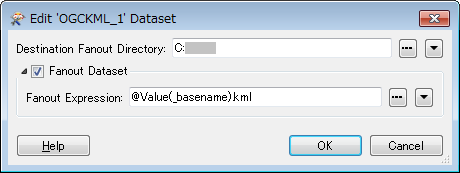I have a KML writer with dynamic attribute definition. The writer always writes a KMZ file but I want it to write a KML file. When you use a static writer you can specify the filename and extension in the writer as either ".kml" or ".kmz" but when it is dynamic you just give the path to the folder and "fme_feature_type" as the feature type name. Also there is no suffix on which to fan out.
How can I get the writer to write KML?
Thanks






